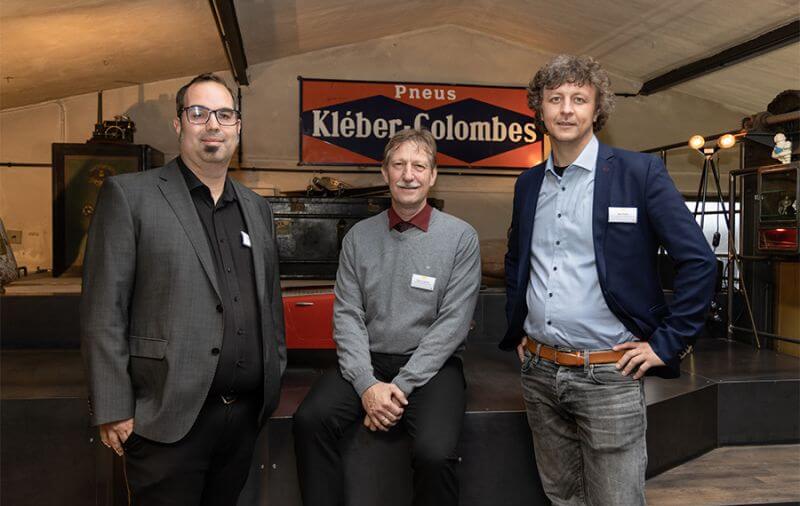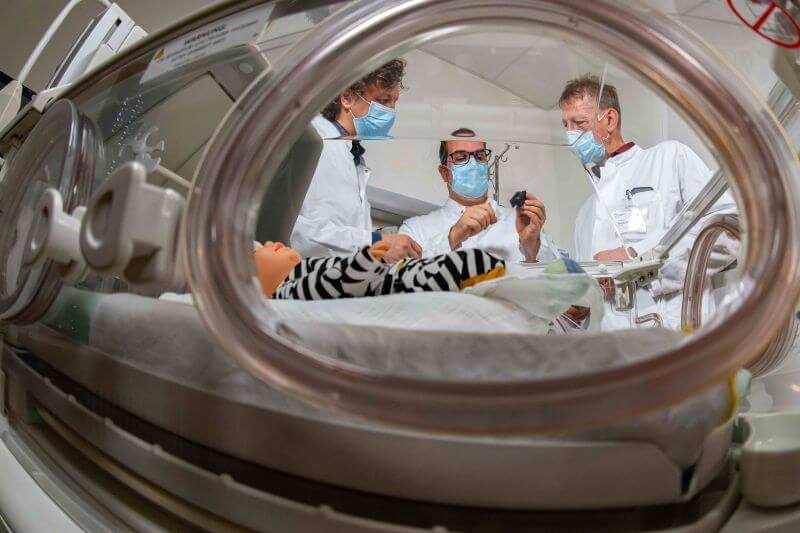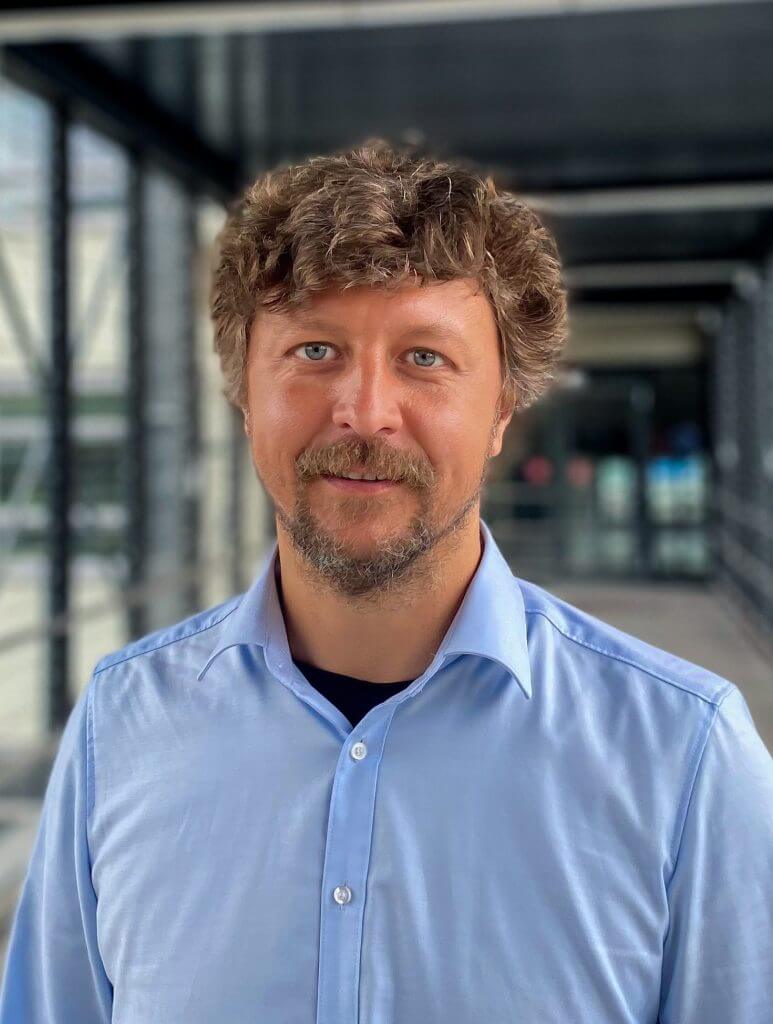

Carl Zeiss Foundation supports interdisciplinary project with €750,000.
As part of the “CZS Wildcard” program, the Carl Zeiss Foundation is supporting five unconventional research approaches in the STEM field. One of these is the INTACT project, which is being conducted by the Ernst Abbe University of Applied Sciences Jena, the Friedrich Schiller University Jena, and the University Hospital Jena.
The project addresses an urgent medical problem: around 200 extremely premature babies in Germany require surgical interventions to relieve intestinal congestion each year due to severe intestinal diseases. Until now, the intestinal contents have been transferred manually – a procedure that puts strain on the infants’ development and requires intensive care.
INTACT therefore aims to develop a miniaturized transport system that continuously transfers intestinal contents and analyzes their composition in real time. This is made possible by a combination of ultrasound and photonics-based sensor technology. The data obtained in this way are intended to enable more targeted and gentler treatment of the youngest patients.
The project is receiving €750,000 in funding for two years. It is coordinated by Prof. Dr. Iwan Schie, Department of Medical Engineering and Biotechnology at the Ernst Abbe University of Jena.
With INTACT, Jena’s research community is making an important contribution to the development of innovative therapies for premature babies – and demonstrating how bold ideas can become reality with the CZS Wildcard.

